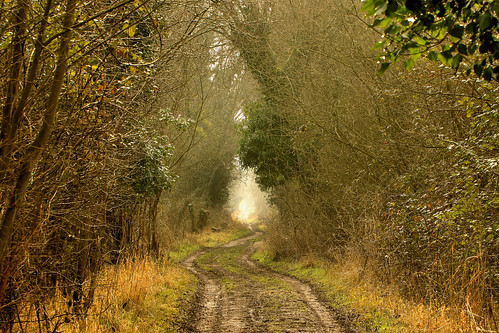RSPB apologises for calling ministers ‘liars’ over environment pledges
RSPB #RSPB

Conservation charity the RSPB has apologised after calling PM Rishi Sunak and several of his ministers “liars”.
The charity said its “frustration” at the government “reneging on its environmental promises… led us to attack the people not the policy”.
The RSPB is angry at plans to scrap water pollution restrictions for housing developments in England.
The government says the move will be offset by other measures to tackle pollution.
It argues water pollution from new homes is “very small” and the change will mean up to 100,000 new homes can be built by 2030.
In a post on X, formerly known as Twitter, earlier on Wednesday, the RSPB criticised Prime Minister Mr Sunak, Housing Secretary Michael Gove and Environment Secretary Therese Coffey directly, writing “you said you wouldn’t weaken environmental protections”.
“And yet that’s just what you are doing. You lie, and you lie, and you lie again,” the post added.
The charity initially told the BBC it stood by the comments.
However three hours later it apologised, saying the original post had fallen “below the standard we set ourselves”.
“We will continue to campaign vigorously on behalf of nature but we will always do so in a polite and considered manner,” it added.
One of the charity’s trustees Ben Caldecott had publicly criticised the post on X, saying it was “simply not an appropriate contribution to our public discourse from such an important and highly respected organisation”.
“We can strongly disagree and make our case without calling people ‘LIARS!'” he said, adding that he had raised the issue “urgently” with the charity’s chief executive and chair.
Conservative MP Mark Jenkinson accused the RSPB of becoming “a political campaigning organisation” and called for the regulator the Charity Commission to strip the organisation of its charity status.
Political campaigning by charities is allowed under guidance issued by the Charity Commission, but any involvement with political parties must be balanced.
A Charity Commission spokesperson said: “We are aware of social media activity by the RSPB and will assess this matter to determine if there is a regulatory role for the commission.”
A government announcement on Tuesday that EU-era rules restricting water pollution for housing developments would be scrapped provoked a furious backlash from environmental campaigners.
The Wildlife Trust branded the plans “disgraceful”, while the RSPB said the proposals would mean “pollution will accumulate unchecked and our rivers face total ecological collapse”.
However, housing developers welcomed the plans.
The Home Builders Federation says nutrient neutrality rules have prevented thousands of homes from being built “despite wide acknowledgement that occupants of new homes are responsible for only a tiny fraction of the wastewater finding its ways into rivers and streams”.
Current Natural England rules mean 62 local authorities cannot allow new developments unless builders can prove their projects are “nutrient neutral” in protected areas, including Somerset, Norfolk, Teesside, Kent, Wiltshire and the Solent.
In response to the RSPB’s original post, a government spokesman said: “We’ve always been clear we will never compromise our high standards and we are fully committed to our ambitious and legally-binding commitments on the environment.”
He said the government’s plans to scrap the rules for housebuilders would “see us tackle pollution at source”.
He added: “This will see us more than offset the negligible impact of new homes on levels of nutrients, by doubling the investment for Natural England to tackle nutrients, bringing this to £280m, drawing up bespoke plans to restore nature in the most affected areas, and providing more support than ever to help farmers reduce pollution from essential agriculture.”
What is nutrient neutrality?
A project is “nutrient neutral” if it can prove it will not add extra nutrients to the surrounding water.
While nutrients may sound healthy, flooding an area with substances such as phosphates and nitrates can reduce the quality of water, harm wildlife and cause excess algae growth.
The nutrient neutral rules have been in place since 2019 following a ruling by the European Court of Justice.
In protected areas across England, developers must prove they will not cause any nutrients to seep into nearby water for new building projects to be granted nutrient neutral status before they can begin building – rather than allowing builders to mitigate the impact of their work across multiple developments.
Research by the Environmental Audit Committee in Parliament found agricultural pollution is “the most common factor” for ecological damage in the UK’s rivers and other water bodies.
But housing developments can also pose a risk due to the wastewater and sewage from new homes – as well as the run-off from construction sites.